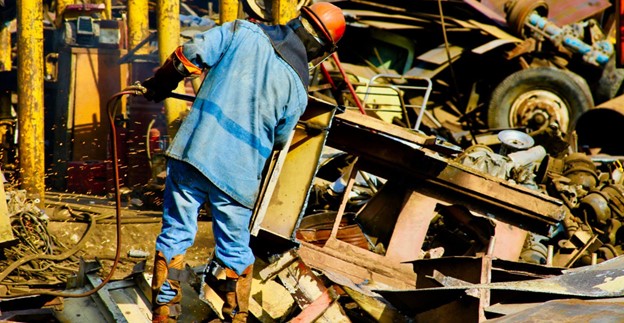In today’s world of aimed sustainability and resourceful living, selling scrap metal has emerged as a lucrative venture accessible to virtually anyone. With a little effort, patience, and knowledge, turning discarded metal into cash can be profitable and eco-friendly.
This guide lays out practical steps from conducting research on high-selling metals and correctly sorting your materials to finding the best scrap buyers in the market.
How to Make Money From Selling Scrap Metal
Are you looking to turn scrap metal into cash? We’ll show you the secrets of making big money from selling scrap metal. Let’s dive in and unlock the hidden potential of this lucrative industry!
Find a Great Scrap Dealer in Your Area
Your scrap metal could be worth a lot of money, but it won’t matter if you don’t take your collection to the right dealer. Some dealers specialize in metals, while others will buy everything. For example, SGT. Scrap is PA’s top aluminum scrap yard, but they’ll take most scrap metal.
If you have a lot of scrap yards in your area, then take the time to compare prices. This is the best way to maximize your returns and turn this side hustle into a full-blown business.
Research High-Selling Metals
An effective strategy to maximize your income in the scrap metal business is targeting high-selling metals. These are metals that fetch higher prices on the market due to their widespread demand or scarcity. These include aluminum, brass, steel, and copper.
Regularly checking online databases or talking to local scrap dealers can provide you with valuable insight into which metals are currently hot sellers.
Properly Separate Your Metal by Ferrous and Non-Ferrous
Separating your scrap metal into ferrous and non-ferrous categories is another crucial step in the process. Ferrous metals, like steel and iron, are magnetic and typically less valuable. Non-ferrous metals, including copper and bronze, are not magnetic and are more valuable.
Using a simple magnet can help you quickly sort through your collection. Separation ensures you don’t undersell your more valuable metals for the price of cheaper ones.
Further Group Your Metal Based on Type and Condition
It’s worthwhile to categorize your scrap based on type and condition. For example, copper can be classified into its forms, like pipes or sheets, while aluminum might be split into cans and frames. Similarly, clean or non-corroded metals are generally more valuable to recyclers.
Organizing your scrap in this way enhances your understanding of what you have, and also presents it in a manner that’s easier for buyers to assess, thus potentially increasing your profit.
Take Apart Electronics and Machinery Before Dropping it Off
To maximize your scrap metal earnings, consider disassembling electronics and machinery before taking them to the scrapyard. Inside these items, you’ll often find valuable non-ferrous metals like copper wires and nickel batteries. You can typically earn more if you take their parts.
Also, many scrap yards charge a fee for breaking down items on-site. In essence, a little extra effort can lead to more cash in your pockets while also saving on potential processing fees.
Get a Truck or Trailer to Safely Transport Big Items
If you plan to deal with large items such as appliances or heavy machinery and don’t wish to dismantle them, it’s wise to invest in a truck or trailer for safe transportation. Scrap metal can be awkward and hazardous to handle, especially when it needs to move from one place to another.
Besides, having your own vehicle not only facilitates the collection of bulky materials, but also prevents extra transportation fees some junkyards or recycling outlets might charge.
Know What You Can’t Scrap
Having a conscious understanding of what’s not accepted by scrapyards is just as important as knowing what you can scrap. Items like AC units and cars contain hazardous substances, such as coolants, which are harmful to the environment. Thus, they often have disposal regulations.
Disposing of these improperly can lead to hefty fines or even legal action against you. To avoid complications, make sure you understand local laws and rules set by recycling facilities.
In Conclusion…
Turning scrap metal into money is not only possible but also quite straightforward. With dedication and the right strategies, anyone can break into this green-line venture. If the idea of an extra revenue stream appeals to you, then it might just be time to roll up your sleeves!

Recent Comments